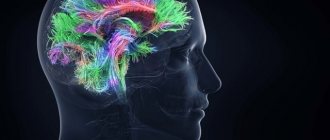Modern science and social science are actively engaged in the study of the biological and social components of man. The biological characteristics of a person, like the social ones, consist of a number of features that equally influenced his evolutionary development.
From this it proceeds that the biological and social in a person form an equal ratio, that is, a person is a biosocial individual and has a dual nature, being a symbiosis of nature and the social system.
Next, both types of human characteristics and their examples will be briefly discussed.
Man as a biological and social being
To study the issue of biological or social dominance in humans, there are two directions: panbiologism
, insisting on the biological uniqueness of each organism (set of genes, character, temperament, formation of appearance and physical characteristics) and
pansociology
, advocating biological equality and putting social development to the fore (manifested through the influence of upbringing, religion, education, formation of talents on a person, personal qualities and perception of the world).
According to philosophical teachings, man is a spiritualized physicality and, to the same extent, a body endowed with soul and mind. According to this, man is the earthly embodiment of the spirit, forced to study, work and satisfy physical needs for survival in nature and society.
At the same time, a person does not lose his individuality and character traits that make him a separate person from society. Thus, man is a unique entity that contains both the earthly and the spiritual in equal measure.
Bonus at last
In conclusion, we give an example of a socio-psychological portrait of a conflict personality. Why conflict? Because every emotionally healthy person tries to avoid conflicts, not to quarrel or swear over trifles, and one of the effective methods on this path is to avoid conflicting personalities. Therefore, let's draw up a portrait of her so that we can know the enemy by sight and be one step ahead.
In psychological practice, a fairly wide range of conflicting personalities are distinguished, differing from each other in a number of characteristics. If you are interested in learning about this topic in more detail, we advise you to read the article “Psychological characteristics of the portrait of a conflict personality.” We will describe one of the most common types of troublemakers - complainers.
When determining the type of temperament of the complainant, of course, one should pay attention to the individual characteristics of the person, but often these are choleric people who are angry at some phenomena, for example, the behavior of a colleague, working conditions, hierarchy of relationships, etc.
Due to their unstable character type, such people sometimes complain due to an emotional outburst, because... they are subject to affects or bad mood. Moreover, the intellect of such a person can be quite developed, except for the fact that it is difficult for them to control their emotions. The orientation of the complainant’s personality may be based on positive motivation - the desire for better changes, the desire to restore justice. However, all these motives can be based on subjective views.
This short socio-psychological portrait can be drawn up using the example of a single individual. We hope that the portraits compiled by you will be more informative, accurate and detailed.
We wish you good luck and suggest taking a short knowledge test to better consolidate the material:
Main factors of human anthropogenesis
Anthropogenesis is the process of human development that is directly influenced by biological and social factors of development.
The biological properties of evolution affect all representatives of living nature, including humans. These include: variability of heredity, struggle for survival, mutations and genetic drift, natural selection.
Social factors include: culture, work, thinking, the formation of moral qualities, the development of social consciousness and speech.
The most important engine of evolution is labor activity
- the ability to create tools for work belongs purely to humans, while animals use auxiliary means for hunting and building housing.
If biological developmental characteristics are transmitted hereditarily, then the acquisition of social ones occurs only during education and upbringing.
The meaning of psychological characteristics in life
It is important to use psychological characteristics when determining tactics for raising children and adolescents and instilling practical skills. At the same time, it is possible to generate interest in socially useful areas that are important to society
Having an idea of a child’s predisposition to any activity, caring parents will never miss the chance to develop their child’s creative or other abilities.
The head of a company, striving to form an active workforce, must promptly take into account the individual psychological characteristics of the recruited employees and gain an idea of their mental characteristics. In such a team, correct communication connections will be formed, and common efforts will be aimed at achieving results.
Biological characteristics of humans
As a biological individual, a person has characteristics that make him similar to other species: the desire to procreate, differences in age and sex, the need for nutrition, breathing and sleep, heredity, the presence of reflexes and instincts, stereoscopic vision, a similar internal structure of the body, the ability to adapt to different environmental conditions.
In addition to general biological features, there are important distinctive features:
- the presence of moral and psychological qualities (character, imagination, emotions, thinking, memory);
- complicated structure of the hands and their mobility, ability for fine motor skills;
- special structure of the brain and structure of the skull;
- ability to stand and walk straight;
- lack of dense wool;
- developed speech apparatus.
Since nature relies on purely physical factors, philosophy considers spirituality and the presence of a soul to be the main difference between humans and the rest of the animal world.
Social characteristics of a person
Man as a social individual has an inextricable connection with society. He can be considered part of society only when entering into social relationships, such as communication, engaging in work or creativity, or participating in the surrounding social life.
Among the main social factors of human development and life:
- articulate speech - humans are the only biological species that can speak it;
- logical and analytical thinking;
- need for social interaction;
- cultural and spiritual development;
- ability to build and create tools for work;
- ability to adapt and learn.
Thanks to the ability to work, man was able to develop the skills of thinking and communication, subsequently creating a primitive society.
Modern basic social qualities of a person lie in the ability to comprehend and interpret the world around him, expressing his vision through consciousness, speech, art, mental and physical work.
Upbringing and the influence of the surrounding world shape the behavior and personality of a person, which is also influenced by society, state, religion, personal opinion and worldview acquired during evolutionary development.
Human society is distinguished by its ability to accumulate, preserve and transmit experience and information received from outside and pass it on from generation to generation.
In addition to adapting to the environment, man also knows how to change it to suit his needs: cut down forests, cultivate the land, build houses and factories, make food and clothing. All human activity is based not only on instincts, like in animals, but on the ability to model, plan and analyze the fruits of one’s actions.
Classification of personality traits
The characteristics of people are assessed according to 2 parameters: internal and external. To consider the first ones, you need to talk with the person for some time. The second qualities are nothing more than a “signboard”; they do not always convey true information.
Inner world
Volitional personality traits - what is it in psychology, their formation
It can be rich in content or primitive. In the first case, people will be drawn to the person, assessing his personal qualities. In the second option, there is unlikely to be a desire to develop relationships. To become in demand in any environment, an individual must:
- look at the world positively;
- be able to think freely;
- do not depend on other people’s opinions (be yourself);
- take care of others;
- easy to make contact;
- realistically assess the situation.
Note! A person needs to develop his inner world, constantly absorbing new knowledge and applying it in practice. It is more interesting to communicate with a versatile, friendly personality.
External surroundings
People are greeted not only by their clothes, but also by their ability to present themselves. A beautiful sign is formed from the created image and behavior of a person. They work on the surroundings:
- attractive appearance;
- ability to choose a clothing style;
Image works for success
- beautiful body language;
- artistry;
- ability to conduct dialogue.
You can have a beautiful sign and at the same time have negative internal properties. Such disharmony cannot lead to real success.
The unity of biological and social in the development of man
The strong relationship and correlation between the social and the biological in a person makes him not just a living organism with a number of biological needs, but also a personality with his own character and worldview.
There is a special biosocial concept about human development, which has two methods of study:
- Naturalistic
- extols the importance of the natural principle in human life. - Sociological
- considers the social component to be the main one in a person, denying the influence of the natural one.
The biological in man precedes the social, creating natural and historical prerequisites for it. Thus, the social becomes secondary and goes beyond the natural principle, being its opposite.
Thanks to this interaction, a person is a universal and holistic being, combining spiritual, psychological and physical foundations.
History of development
Social psychology began studying groups only at the beginning of the 20th century. Previously, the object of study was the individual, not society. They examined in depth the characteristics of perception, attitudes, and interpersonal interaction, but did not try to evaluate a person as an integral part of formation.
Some psychologists completely denied the existence of groups as objects of study. This approach in social psychology was called personalistic. But in parallel with it, another way of studying developed - sociological. Its proponents argued that one cannot fully understand the motives of a person's behavior if one studies him only as an individual. A group, as an association of people, inevitably influences a person and this cannot be ignored.
The study of group processes has developed more actively in the United States. Under the leadership of K. Levin, research was carried out in the laboratory studying the dynamics, types of leadership, cohesion and other categories that determine the behavior of formations.
Already in the middle of the 20th century, personalistic and sociological psychology joined forces. This happened under the influence of government agencies interested in the emergence of new effective methods of managing industrial and military organizations. Interest in the study of various formations only increased by the end of the 20th century. Nowadays, research methods continue to expand and improve.









